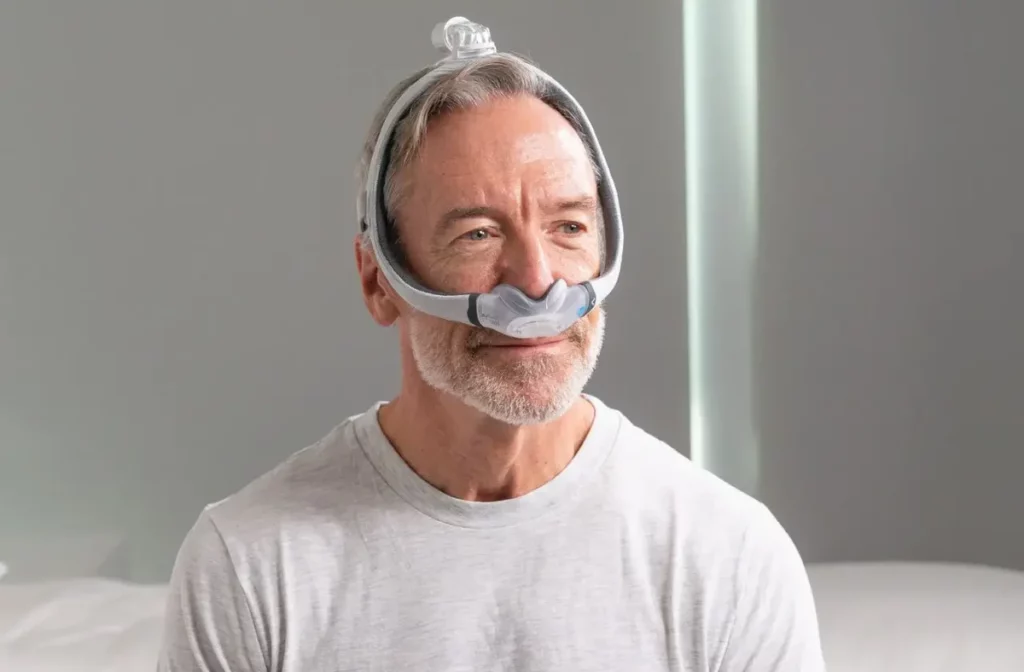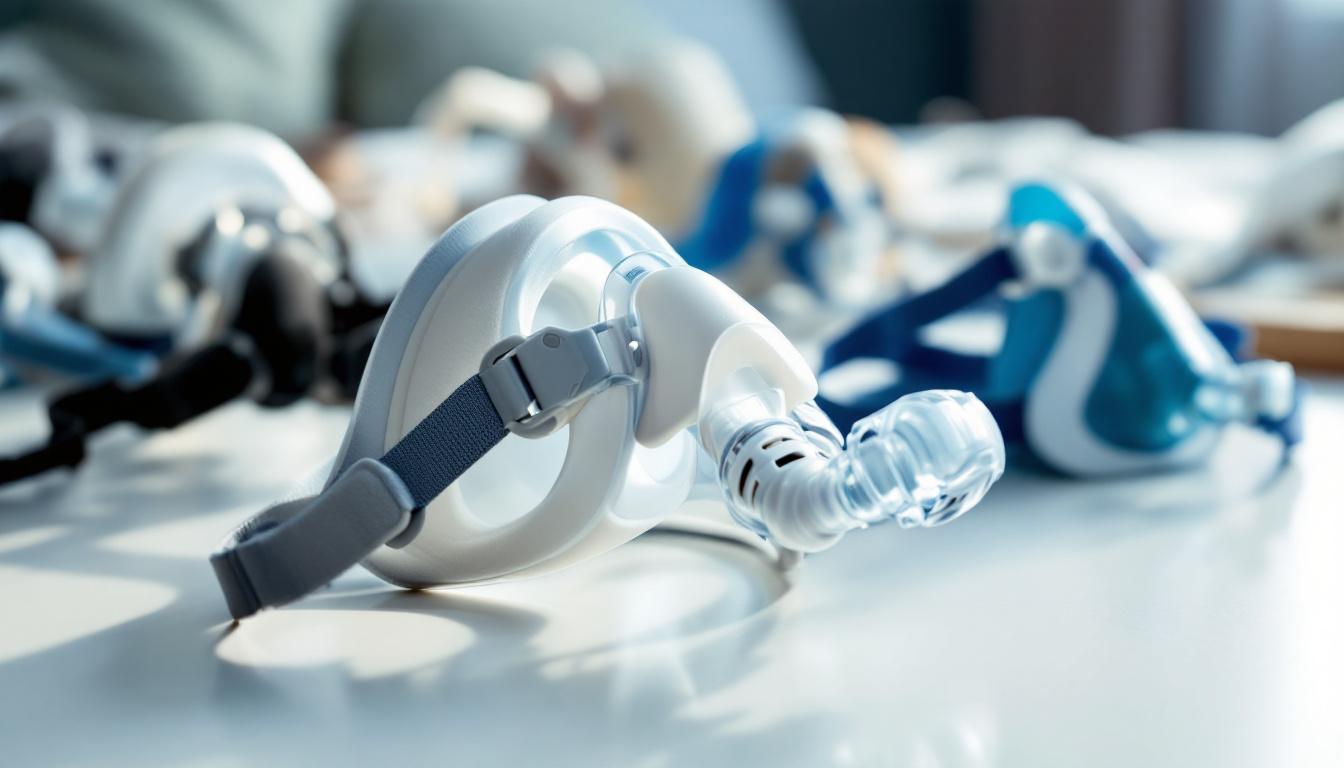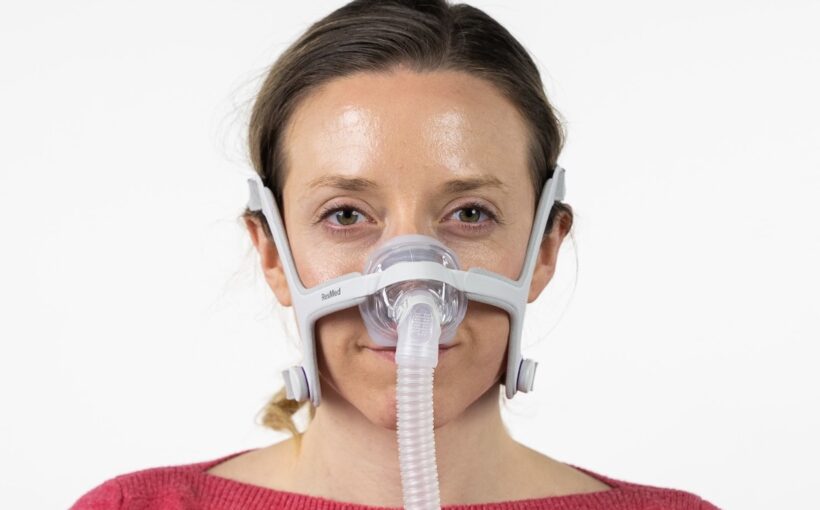Understanding CPAP Masks and Their Importance
Continuous Positive Airway Pressure (CPAP) masks are essential devices for individuals suffering from sleep apnea, a condition characterized by interrupted breathing during sleep. These masks work in conjunction with a CPAP machine to deliver a steady stream of air, keeping the airway open and promoting uninterrupted sleep. Understanding these masks and their significance is vital for achieving effective treatment and improving overall sleep quality.
The importance of CPAP masks cannot be overstated. They are the first line of defense against the adverse effects of sleep apnea, including daytime fatigue, cardiovascular complications, and other serious health issues. A well-fitting CPAP mask can enhance the user experience and ensure adherence to therapy, ultimately leading to a healthier and more energized life.
The Role of CPAP Masks in Sleep Apnea Treatment
CPAP masks serve as a critical component in the treatment of sleep apnea. The mask creates a seal around the nose or mouth, allowing the CPAP machine to provide airflow directly into the airway. This continuous airflow prevents the airway from collapsing during sleep, which is a common issue for individuals with obstructive sleep apnea.
Beyond merely preventing airway obstruction, CPAP mask Australia usage contributes to improved oxygen levels during sleep. By maintaining proper airflow, these masks help decrease the risk of complications associated with untreated sleep apnea, such as hypertension, heart disease, and stroke. Therefore, choosing the right mask becomes integral to a successful sleep apnea management plan.
Different Types of CPAP Masks
There are several types of CPAP masks available, each designed to cater to different user preferences and comfort levels. The most common types include full face masks, nasal masks, and nasal pillow masks. Understanding the differences among these types is essential for making an informed choice.
Full face masks cover both the nose and mouth, making them ideal for individuals who breathe through their mouths or have nasal congestion. Nasal masks, on the other hand, cover only the nose and are best suited for those who primarily breathe through their noses. Nasal pillow masks have a minimal design, with soft pillows that fit directly into the nostrils and are often preferred by users who value a lightweight and unobtrusive option.

In addition to these common types, there are also hybrid masks that combine features of both full face and nasal masks, offering flexibility for users who may switch between mouth and nasal breathing. Furthermore, advancements in technology have led to the development of CPAP masks with built-in humidifiers and adjustable straps for enhanced comfort. These innovations not only improve user experience but also encourage consistent use, which is crucial for effective treatment.
Choosing the right CPAP mask involves considering factors such as facial structure, sleeping position, and personal comfort preferences. Many suppliers offer trial periods for different mask types, allowing users to find the best fit for their needs. Additionally, regular maintenance and cleaning of the masks are essential to prevent skin irritation and ensure optimal performance, making it important for users to familiarize themselves with proper care techniques.
Key Features to Consider When Choosing a CPAP Mask
Selecting the right CPAP mask involves careful consideration of several key features. These features can significantly affect a user’s comfort, sleep quality, and adherence to therapy.

Comfort and Fit
Comfort and a proper fit are paramount when choosing a CPAP mask. A mask that is too tight can cause discomfort and skin irritation, while a loose-fitting mask may lead to air leaks, compromising the effectiveness of the treatment. Most masks come with adjustable straps and various cushion options to help achieve the best fit possible.
It’s advisable to try on different masks at a CPAP equipment provider to find the most comfortable fit. Additionally, many manufacturers offer sizing guides and personalized consultations to assist users in selecting the best mask for their needs. It’s also worth noting that the shape of an individual’s face can influence the fit of the mask, so individuals may want to consider masks designed specifically for their facial structure. This can enhance comfort and ensure that the mask remains in place throughout the night, allowing for uninterrupted sleep. Read more about comfort on https://www.waldenu.edu/programs/psychology/resource/the-pros-and-cons-of-comfort-zones
Mask Types and Styles
The type and style of mask can greatly influence comfort levels. While full face masks are suitable for a wide range of users, individuals who prefer a lighter option may opt for nasal pillows or nasal masks. Each type has its own advantages and potential drawbacks, making personal preferences essential in the selection process.
For example, those who feel claustrophobic may benefit from nasal pillow masks, while users who require the highest level of pressure support might find full face masks more beneficial. Additionally, some masks come equipped with features like exhalation ports that minimize noise and enhance airflow, which can be particularly beneficial for light sleepers or those sharing a bed. Ultimately, it’s about finding the right balance between comfort and therapy effectiveness, as well as considering lifestyle factors such as whether the user tends to sleep on their back or side.
Durability and Maintenance
The durability of a CPAP mask is crucial for long-term use. High-quality materials ensure that the mask will withstand regular use while maintaining functionality. Look for masks that portray a reputation for durability and ease of cleaning.
Maintenance plays a significant role in the performance of a CPAP mask. Regular cleaning and timely replacement can prevent the buildup of bacteria and allergens, which is vital for maintaining health. Check the manufacturer’s guidelines for specific cleaning instructions and recommended replacement schedules to ensure optimal performance. In addition, some users may find it helpful to invest in a CPAP mask cleaning device, which can simplify the cleaning process and ensure that the mask remains hygienic. Furthermore, understanding the lifespan of different components, such as cushions and headgear, can help users plan for replacements and avoid disruptions in their therapy due to wear and tear.
Top CPAP Masks Available in Australia
Australia offers a variety of CPAP masks from reputable brands known for their quality and effectiveness. Here are some popular choices among Australian users:
Full Face CPAP Masks
Full face CPAP masks are a top choice for many users, especially those who may breathe through their mouths during sleep. Brands like ResMed and Philips Respironics offer high-quality full face masks that provide stability and comfort. Features like soft cushions and adjustable straps allow users to customize the fit for maximum comfort. Click here to know more about stability.
Nasal CPAP Masks
Nasal CPAP masks are also highly regarded for their lightweight design and ease of use. Popular options include the Fisher & Paykel Healthcare Zest Q nasal mask and the ResMed AirFit N20. These masks provide effective therapy while allowing for a feeling of freedom and movement during sleep.
Nasal Pillow CPAP Masks
Nasal pillow masks, such as the ResMed AirFit P10 and the Philips Respironics DreamWear, are gaining popularity for their minimalist design. These masks offer minimal contact with the face while still delivering effective therapy. They are especially well-suited for individuals who feel restricted by traditional masks.
How to Properly Use and Care for Your CPAP Mask
Cleaning and Maintenance Tips
Cleaning your CPAP mask regularly can prevent the accumulation of dirt and bacteria. It’s recommended to wash the mask daily with mild soap and water. Rinse thoroughly and allow it to air dry. Regularly check the headgear for wear and replace it if it shows signs of damage.
In addition to daily cleaning, it’s essential to conduct a deep clean weekly. This involves removing all components of the mask and soaking them in a vinegar solution to disinfect. Proper care will extend the lifespan of the mask and ensure effective treatment.
Ensuring a Proper Fit for Optimal Results
To achieve the best results from your CPAP therapy, ensuring a proper fit is crucial. Always adjust the straps to achieve a snug yet comfortable fit. When you put on the mask, make sure there are no gaps or leaks, as these can significantly reduce the effectiveness of the therapy.
Consider consulting with a healthcare provider or a CPAP specialist for assistance in adjusting the mask for maximum comfort and effectiveness. Regularly reassessing the mask fit is also essential, as changes in weight or other factors can affect how well it fits.
Frequently Asked Questions About CPAP Masks
As you explore your options for CPAP masks, you may have some common questions. Here are answers to frequently asked questions that users often have.
Can I Use Any CPAP Mask with Any CPAP Machine?
While many CPAP masks are compatible with various CPAP machines, it is essential to ensure that the mask you choose is specifically designed to work with your model. Check with the manufacturer’s guidelines and user manual to confirm compatibility.
How Often Should I Replace My CPAP Mask?
Replacement schedules for CPAP masks can vary based on usage and materials. It’s generally recommended to replace the mask every 6 to 12 months. However, if you notice the mask is not fitting properly, showing signs of wear, or if it’s becoming difficult to clean, consider replacing it sooner.
Maintaining a proper replacement schedule ensures that you continue to receive optimal therapy results from your CPAP device.
Other resources: How to Buy CPAP Mask Online

